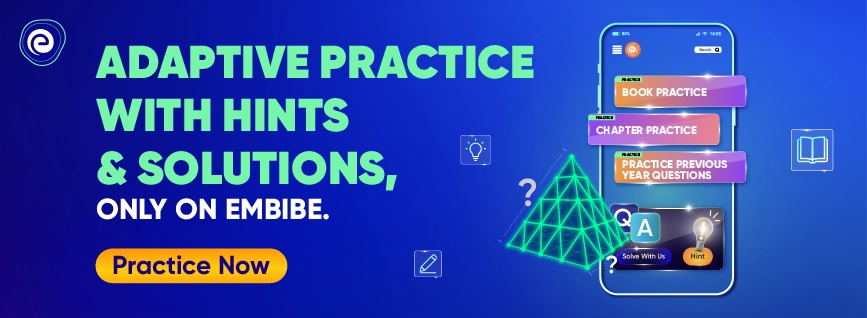- Written by gnanambigai
- Last Modified on 1-03-2023
About Nagaland Board Class 8 Exam 2023
The Nagaland Board of Secondary Education was set up through an act by the Nagaland Legislative Assembly in 1973. The headquarters of the NBSE board is in Kohima. The NBSE Board started functioning on the 1st of October 1974. The board also regulates secondary education and conducts the Class 8 exam and prescribes the syllabus and curriculum.
The evaluation process in the NBSE board-affiliated schools changed in the year 2007 when the Board introduced Continuous and Comprehensive Evaluation (CCE) for Class 8 students. Under this assessment scheme for Class 8, apart from the academic achievements, the achievements of the students in non-academic areas are also taken into account. Continue reading to learn more about the NBSE Board Class 8 exams.
Exam Summary
Nagaland Board Class 8 Exam Summary 2023
The Nagaland Board Class 8 exams are conducted in Phase I and Phase II. The NBSE informed students that there will be a division in the syllabus for the two phases of examinations; schools must be prepared to conduct examinations and maintain a good infrastructure, as well as make other facilities available such as proper working computers, power back-up, printers, and so on, as the examinations will be conducted offline.
Moreover, for the exams, Mathematics, Science, Social Science, and two languages are used to evaluate students. Co-curricular activities are also valued by the Nagaland Board of Education. Formative assessment includes performance analysis through quizzes, interviews, visual tests, assignments, practicals, oral tests, projects, puzzles, group activities, and so on. Furthermore, as part of the summative assessment process, performance of students will be analysed on the basis of the Nagaland Board Class 8 syllabus and curriculum.
The Nagaland Board of Education believes that co-scholastic skills are as important as scholastic skills. Hence, these skills will also be assessed. Co-scholastic skills include health and physical education, attitude and values, aesthetic skills, participation and achievement in literary and creative Skills.
Nagaland Board Official Website Link
https://nbsenl.edu.in/
Nagaland Board Class 8 Exam Syllabus 2023
Students must be aware of the Nagaland Board Class 8 subject-wise syllabus. Knowing the syllabus ahead of time informs students about the important topics for the Class 8 academic session. Furthermore, the syllabus gives an overview of the subject and what it’s all about. They also learn about their own strengths and weaknesses, allowing them to plan their exam preparation accordingly. Students can find the Nagaland Board Class 8 subject-wise syllabus in the following sections.
Nagaland Board Class 8 Mathematics Syllabus
Class 8 Maths introduces students to concepts that are useful for higher classes. The chapters included in the syllabus of Nagaland Board Class 8 Mathematics are tabulated below. Students must carefully go through the entire syllabus to prepare for their exams and score higher marks:
| Chapter No. |
Chapter Name |
| Chapter 1 |
Rational Numbers |
| Chapter 2 |
Linear Equation in One Variable |
| Chapter 3 |
Understanding Quadrilaterals |
| Chapter 4 |
Practical Geometry |
| Chapter 5 |
Data Handling |
| Chapter 6 |
Square and Square Roots |
| Chapter 7 |
Cube and Cube Roots |
| Chapter 8 |
Comparing Quantities |
| Chapter 9 |
Algebraic Expressions and Identities |
| Chapter 10 |
Visualising Solid Shapes |
| Chapter 11 |
Mensuration |
| Chapter 12 |
Exponents and Powers |
| Chapter 13 |
Direct and Indirect Proportions |
| Chapter 14 |
Factorisation |
| Chapter 15 |
Introduction to Graphs |
| Chapter 16 |
Playing with Numbers |
Nagaland Board Class 8 Science Syllabus
The NBSE Board recommends NCERT books to students. The syllabus for NBSE Class 8 is designed to promote understanding of the subject and its relation to real life. Therefore, students must go through the syllabus and start reading the NCERT books to ace the exams:
| Chapter No. |
Chapter Name |
| Chapter 1 |
Crop Production and Management |
| Chapter 2 |
Microorganisms: Friend or Foe |
| Chapter 3 |
Synthetic Fibres and Plastics |
| Chapter 4 |
Materials: Metals and Non-Metals |
| Chapter 5 |
Coal and Petroleum |
| Chapter 6 |
Combustion and Flame |
| Chapter 7 |
Conservation of Plants and Animals |
| Chapter 8 |
Cell – Structure and Functions |
| Chapter 9 |
Reproduction in Animals |
| Chapter 10 |
Reaching the Age of Adolescence |
| Chapter 11 |
Force and Pressure |
| Chapter 12 |
Friction |
| Chapter 13 |
Sound |
| Chapter 14 |
Chemical Effects of Electric Current |
| Chapter 15 |
Some Natural Phenomena |
| Chapter 16 |
Light |
| Chapter 17 |
Stars and The Solar System |
| Chapter 18 |
Pollution of Air and Water |
Nagaland Board Class 8 Social Science Syllabus
The Nagaland Board Class 8 Social Science syllabus is divided into three sections: History, Geography, and Civics. To help students with their studies, we have compiled the syllabus for Social Science below. This will help students prepare a study plan for the exam.
Nagaland Board Class 8 History Syllabus
The Nagaland Board Class 8 History syllabus includes several interesting topics. Students must read and jot down the dates of major events to score good marks in the subject:
| Chapter No. |
Chapter Name |
| Chapter 1 |
How, When and Where |
| Chapter 2 |
From Trade to Territory |
| Chapter 3 |
Ruling the Countryside |
| Chapter 4 |
Tribals, Dikus and the Vision of the Golden Age |
| Chapter 5 |
When People Rebel |
| Chapter 6 |
Colonialism and the City |
| Chapter 7 |
Weavers, Iron Smelters and Factory Owners |
| Chapter 8 |
Civilising the “Native”, Educating the Nation |
| Chapter 9 |
Women, Caste and Reform |
| Chapter 10 |
The Changing World of Visual Arts |
| Chapter 11 |
The Making of the National Movement 1870s-1945 |
| Chapter 12 |
India after Independence |
Nagaland Board Class 8 Geography Syllabus
The Nagaland Board Class 8 Geography syllabus will help students understand about the resources we use from our environment and much more. Students must go through the syllabus carefully to score higher marks in the exam:
| Chapter No. |
Chapter Name |
| Chapter 1 |
Resources |
| Chapter 2 |
Land, Soil, Water, Natural Vegetation and Wildlife Resources |
| Chapter 3 |
Mineral and Power Resources |
| Chapter 4 |
Agriculture |
| Chapter 5 |
Industries |
| Chapter 6 |
Human Resources |
Nagaland Board Class 8 Civics Syllabus
The Nagaland Board Civics syllabus will help students learn about the Indian constitution, our democracy, and much more. Students are advised to understand the syllabus and prepare a good study plan to ace the exams:
| Chapter N0. |
Chapter Name |
| Unit One: The Indian Constitution and Secularism |
| Chapter 1 |
The Indian Constitution |
| Chapter 2 |
Understanding Secularism |
| Unit Two: Parliament and the Making of Laws |
| Chapter 3 |
Why do we need a Parliament? |
| Chapter 4 |
Understanding Laws |
| Unit Three: The Judiciary |
| Chapter 5 |
Judiciary |
| Chapter 6 |
Understanding Our Criminal Justice System |
| Unit Four: Social Justice and the Marginalised |
| Chapter 7 |
Understanding Marginalism |
| Chapter 8 |
Confronting Marginalism |
| Unit Five: Economic Presence of the Government |
| Chapter 9 |
Public Facilities |
| Chapter 10 |
Law and Social Justice |
Nagaland Board Class 8 English Syllabus
The English syllabus for NBSE Class 8 is divided into two parts:
- English Literature
- English Grammar & Composition
The Nagaland Board of Education Class 8 English Literature section is based on a main textbook of English and a Supplementary Reader. Let us see what are included in each of the two books.
Nagaland Board Class 8 English (Honeydew – Textbook) Syllabus
The Honeydew textbook includes the following important topics. Students must understand these topics and be well-versed with them to score good marks:
| Chapter No. |
Chapter Name |
| Chapter 1 |
The Best Christmas Present in the World |
| Poem |
The Ant and the Cricket |
| Chapter 2 |
The Tsunami |
| Poem |
Geography Lesson |
| Chapter 3 |
Glimpses of the Past |
| Poem |
Macavity: The Mystery Cat |
| Chapter 4 |
Bepin Choudhury’s Lapse of Memory |
| Poem |
The Last Bargain |
| Chapter 5 |
The Summit Within |
| Poem |
The School Boy |
| Chapter 6 |
This is Jody’s Fawn |
| Poem |
The Duck and the Kangaroos |
| Chapter 7 |
A Visit to Cambridge |
| Poem |
When I set out for Lyonnesse |
| Chapter 8 |
A Short Monsoon Diary |
| Poem |
On the Grasshopper and Cricket |
| Chapter 9 |
The Great Stone Face – I |
| Chapter 10 |
The Great Stone Face – II |
Nagaland Board Class 8 English (It So Happened – Supplementary Reader) Syllabus
The chapters included in the supplementary reader book have been tabulated below for reference. Students can take a look at the syllabus and start preparing for the exams in the right way:
| Chapter No. |
Chapter Name |
| Chapter 1 |
How the Camel Got His Hump |
| Chapter 2 |
Children at Work |
| Chapter 3 |
The Selfish Giant |
| Chapter 4 |
The Treasure Within |
| Chapter 5 |
Princess September |
| Chapter 6 |
The Fight |
| Chapter 7 |
The Open Window |
| Chapter 8 |
Jalebis |
| Chapter 9 |
The Comet – I |
| Chapter 10 |
The Comet – II |
Nagaland Board Class 8 English Grammar and Composition Syllabus
This section is also subdivided into two parts – English Grammar and English Composition (Writing). The detailed syllabus of these two sections of NBSE Class 8 is as follows:
The Class 8 English grammar syllabus has the following topics:
| Unit No. |
Unit Name |
| I |
Order of Words and Clauses |
| II |
Direct and Indirect Speech |
| III |
Active and Passive Voice |
| IV |
Tenses |
| V |
Noun |
| VI |
Pronoun |
| VII |
Verb |
| VIII |
Adverb |
| IX |
Prepositions |
| X |
Conjunction |
| XI |
Phrases and Idioms |
| XII |
Vocabulary |
| XIII |
Comprehension Reading |
Nagaland Board Class 8 English Composition (Writing) Syllabus
This section tests the writing skills of the students. The English Composition syllabus has the following topics:
| Unit No. |
Unit Name |
| I |
Notice |
| II |
Story |
| III |
Formal and Informal Letters |
| IV |
Diary Entry |
| V |
Essay |
Nagaland Board Class 8 Exam Dates 2023
The Nagaland Board Class 8 exam is conducted in two phases – phase I and phase II. The board has fixed the exam date to be conducted from November 29, 2022 to December 6, 2022. The timetable however will depend on the school authorities. Therefore, students should wait for the notification from their respective schools. The exam duration for core subjects is 90 minutes while it is 60 minutes for vocational subjects.
Nagaland Board Class 8 Study Plan to Maximise Score
One of the most common questions a Class 8 student has is how to study for the final exam. The Class 8 exam is a difficult phase in every student’s life because it lays the groundwork for their future career and achievements. To achieve the goals, it is critical to have a well-defined exam preparation strategy and some tips. Below we have provided easy preparation tips and a study plan to help students stay stress-before exams:
Nagaland Board Class 8 Preparation Tips
To help students prepare for the exams, we have put together some of the best preparation tips for the students. These tips can elevate a student’s preparation for the exam. Refer to the points below to know the NBSE Class 8 preparation tips.
- Students should prepare a time table ahead of the exams and stick to it to cover the entire syllabus on time.
- Students should go through the syllabus and prepare a study plan accordingly. Also, students must be familiar with the exam pattern and other details to score excellent marks.
- Students should have an idea about their strengths and weaknesses to prepare for the exams in the right way.
- Students must clear their doubts regarding any subject and consult the subject teacher.
- Students must refer to Embibe’s learning platform to study for the exams. Embibe has tons of study materials like books, practice questions, previous year papers, videos and much more.
- Students must try solving the previous year question papers to familiarise themselves with the type of questions asked in the exam.
- Also, students must attempt Embibe’s mock tests before the exams. This helps them track their progress.
Nagaland Board Class 8 Detailed Study Plan
A detailed study plan will help students study every subject with efficiency. This ensures that they can score good marks in all the subjects. We have compiled a detailed study plan for all the Class 8 students in the NBSE board to help them boost their exam preparation level:
- Students must start with organising their study space. They must ensure that they have enough space for their textbooks and important documents. Students must try to get rid of any distractions near them.
- Students can use diagrams or flow charts to study. These visual aids allow students to remember the topics for a longer time.
- Students must divide their study time properly. They must try to cover topics from each subject everyday to avoid missing any important information.
- Students can try explaining their answers to anyone. This helps them highlight the areas they need to improve.
- Students can organise study groups with their friends as discussion helps with the revision of topics.
- Students can also practice questions to enhance their comprehension, and take mock tests to evaluate how well they have performed and what needs to be improved. They can access practice questions and take tests for on Embibe.
FAQs on Nagaland Board Class 8 Exam 2023
Here are some frequently asked questions about the Nagaland Board Class 8 exam 2023:
Q: Where can I get details about the Nagaland Board Class 8 exam?
Ans: Students can get details about the Nagaland Board Class 8 exam on this page.
Q: What are the subjects included in the NBSE Class 8 curriculum?
Ans: The NBSE Class 8 curriculum includes subjects like Science, Mathematics, Social Science, and the languages like English, Hindi along with any other regional language which can be selected by the student.
Q: Where can I find the study material for NBSE Class 8 exams?
Ans: Students can find study materials like ebooks, videos, mock tests, and practice questions for NBSE Class 8 exams on Embibe for.
Q: When will the NBSE Class 8 annual exams be conducted?
Ans: The NBSE Class 8 annual exam had been conducted on November 29, 2022 to December 6, 2022.
Q: What is the benefit of referring to study materials on Embibe for Nagaland Board Class 8?
Ans: The study materials on Embibe help students learn the concepts easily through 3D videos. They also enhance conceptual understanding and problem-solving skills through practice and tests.
Nagaland Board Class 8 List of Educational Institutions 2023
Nagaland’s schools are overseen by both the federal and state governments. There are also numerous schools and colleges run by private organisations. All schools provide education in English, Nagaland’s official language. The list of schools in Nagaland are as follows:
| Sr. No. |
School Name |
| 1. |
Rüzhükhrie Govt. Higher Secondary Arts, Commerce & School, Kohima – 797001. |
| 2. |
Govt. Higher Secondary School, Arts Tseminyu – 797109. |
| 3. |
Govt. Higher Secondary School, Arts & Commerce Seikhazou, Kohima – 797001. |
| 4. |
T.M. Govt. Higher Secondary School, Arts Post Box No. 74, Kohima – 797001. |
| 5. |
Govt. Higher Secondary School, Arts & Commerce Jotsoma, P.O. Science College Jotsoma – 797002. |
| 6. |
Govt. High School, Chunlikha |
| 7. |
Govt. High School, Sendenyu, |
| 8. |
Govt. High School, Botsa, P.O. Chiechama – 797105 |
| 9. |
Govt. High School, Kigwema, B.P.O. Kigwema, P.O. Kohima – 797001. |
| 10. |
Govt. High School, Khuzama, P.O. Kohima -797001 |
| 11. |
. Govt. High School, Chandmari, Kohima – 797001 |
| 12. |
. Govt. High School, Rüsoma, P.O. Kohima – 797001 |
| 13. |
Govt. High School, Zhadima, P.O. Chiephobozou, Kohima – 797001 |
| 14. |
Govt. High School, Nerhema, Nerhe Model, Kohima-797001 |
| 15. |
Mezhür Higher Secondary School, Arts & Science Midland, Kohima – 797001. |
| 16. |
Don Bosco Higher Secondary School, Arts & Science Post Box No.124, Kohima – 797001 |
| 17. |
Baptist High, Science Mission Compound, Kohima – 797001 |
Future Exams After Nagaland Board Class 8
Competitive exams are now at the heart of our educational system. While many students believe that competitive exams are only held for senior students, this is not the case. Even Class 8 students can take competitive exams and apply for scholarship programmes. To gain benefit from such competitive exams, every student must be aware of them. Some of the competitive exams for which Class 8 students can appear are as follows:
- National Talent Search Examination (NTSE):Students are tested based on their knowledge and understanding of Science, Mathematics, Social Science, Mental Ability and General Knowledge.
- National Level Science Talent Search Exam (NLSTSE):This exam consists of subjects like Mathematics, Physics, Chemistry, Biology and other General Awareness questions.
- Indian National Olympiad (INO): The syllabus includes Physics, Chemistry, Biology, Astronomy and Junior Science. This exam has five-stages.
- GeoGenius: This exam aims to create interest in Geography. In this exam, students are asked to mark the various locations of India on a blank map.
- National Interactive Mathematics Olympiad (NIMO):This exam tests and analyses the students’ mental ability and mathematical skills.















































